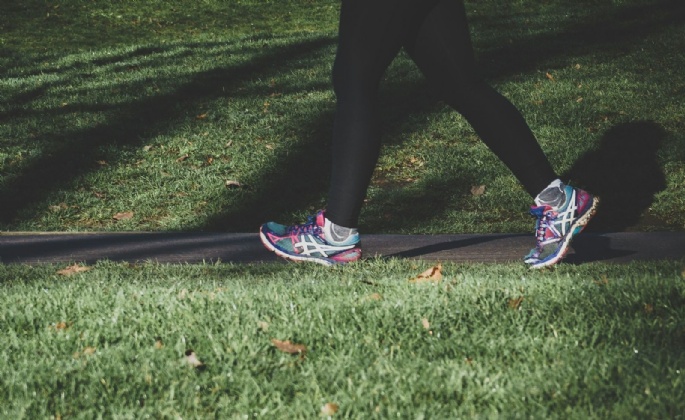Weekly PSHE & Careers Tasks for 4th March 2024

Please see tasks below for Key stage 3, Key Stage 4 and Careers for the week commencing 4/3/24.
For friendly feedback, email your work to: yvonne.prendergast@pilgrim.lincs.sch.uk
Key Stage 3 PSHE Topic - Balanced Lifestyles
Objectives
Know a range of healthy coping strategies, including physical activity to promote wellbeing and boost mood.
Information
Being physically active does not necessarily mean exercising or playing games. Physical activity will mean different things to different people depending on age, interests and levels of fitness.
Physical activity is defined as any body movements produced by skeletal muscle that requires using of energy. It means moving about during leisure time, being active by walking or cycling rather than riding in a car, going up stairs instead of taking a lift, walking the dog, gardening, household chores in addition to activities such as dancing to music rather than just listening. Some people will consciously incorporate more formal exercise into their lives like swimming, going to the gym, training or playing a sport.
Physical activity can be classified from moderate to vigorously intense. A moderate activity such as brisk walking or water aerobics will raise your heart rate and make you breathe faster and feel warmer, you should still be able to talk, but not sing. Vigorously intense activities are performed in short bursts of maximum activity such as circuit training, lifting weights. The World Health Organisation suggests Children aged 7 to teenagers aged 17 should do at least 60 minutes of moderate to vigorous activities per day and adults aged 18 to 64 at least 150 – 300 moderate to vigorous activities per week.
Physical activity has significant health benefits for hearts, bodies and minds and contributes to preventing and managing non-communicable diseases such as cardiovascular diseases, cancer and diabetes. Physical activity reduces symptoms of depression and anxiety and enhances thinking, learning and judgement skills. Physical activity ensures healthy growth and development in children and young people.
Tasks
1. Describe positive and negative emotions you feel after physical activity or exercising. Do positive feelings outweigh negative feelings? If not how can you change what you do?
2. Research the impact of exercise on heart, lungs, muscles, bones and hormones, strengths, stamina and flexibility. Annotate a diagram of the body to show your findings.
3. Mindmap what encourages or deters us from being physically active.
4. Research the benefits of 5 physical activities you could incorporate into your day to ensure you have 60 minutes of physical activity.
Extension (optional)
Produce a poster explaining the benefits of being physically active and what you can do in your home, garden or local community.
Key Stage 4 PSHE Topic – Healthy Relationships
Objective
Know the legal rights, responsibilities and protections provided by The 2010 Equality Act and the 9 protected characteristics.
Information
The Equality Act 2010 protects you from discrimination? (being treated unfairly) by:-
- employers
- businesses and organisations which provide goods or services like banks, shops and utility companies
- health and care providers like hospitals and care homes
- someone you rent or buy a property from like housing associations and estate agents
- schools, colleges and other education providers
- transport services like buses, trains and taxis
- public bodies like government departments and local authorities
There are nine protected characteristics in the Equality Act. If you’re treated unfairly because someone thinks you belong to a group of people with protected characteristics, this is also unlawful discrimination.
The protected characteristics are:-
- age
- disability
- gender reassignment
- marriage or civil partnership (in employment only)
- pregnancy and maternity
- race
- religion or belief
- sex
- sexual orientation
If you complain about discrimination The Equality Act protects you if you're treated badly because you've complained about discrimination or stood up for discrimination rights, either for yourself or for someone else.
Further help and information You can find out more about your rights under the Equality Act on The Citizen Advice discrimination pages.
Tasks
1. Discuss and explain how individuals and families can be discriminated against by different agencies and organisations if protection is not in place.
2. Discuss and explain consequences to individuals and families if discrimination is allowed to happen.
Extension
Create a story-board for a scenario in which someone is discriminated against. Include information on:
a) the discriminatory event – who? Where? How? Why? The person was discriminated against.
b) consequences and how the person felt.
c) how you complained (look up how to complain formally against discrimination)
Key Stage 3 and Key Stage 4 Careers
Objective
Investigating post-16 opportunities and destinations.
Task
Look in the Destinations section of the school website. Click on your nearest college to see if they provide any course that would interest you. Click on different providers to colleges to see whether they operate in your area and whether they could provide anything of interest for you. These providers are much smaller than colleges so often provide more support and a more suitable environment for many of our pupils. Keep a list of places that interest you to talk over with your parents, carers and PSWS.
